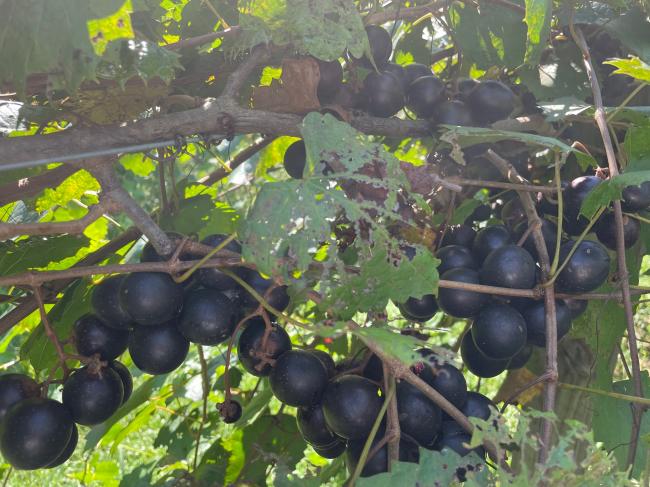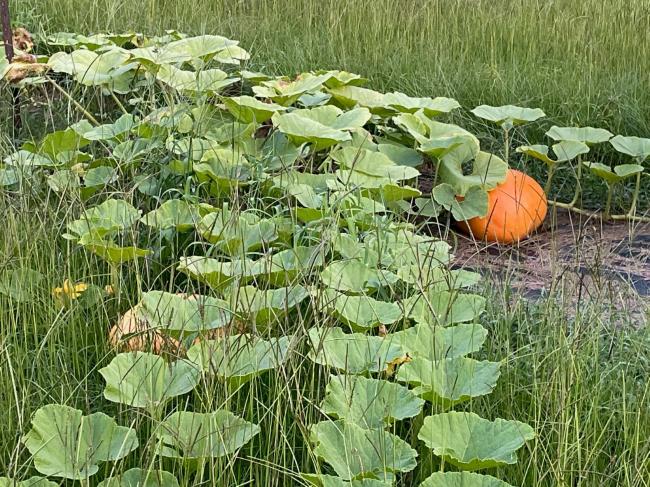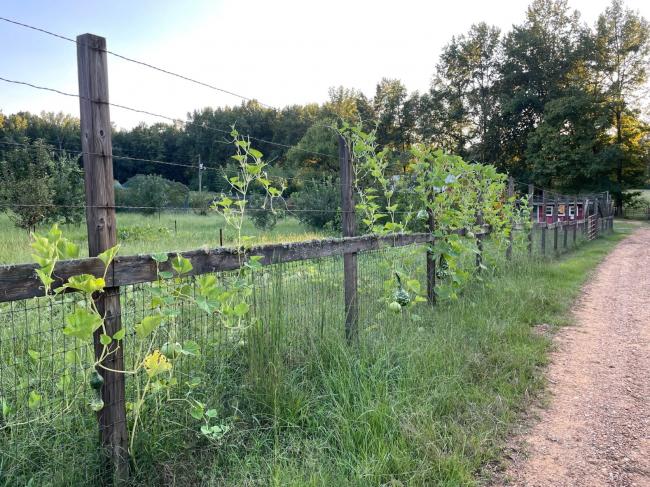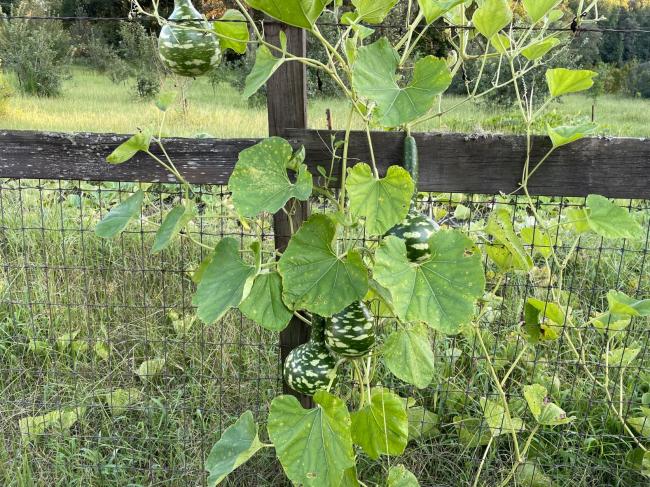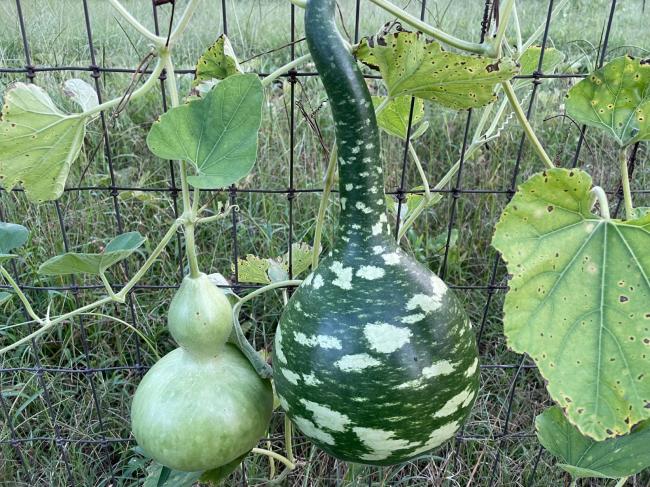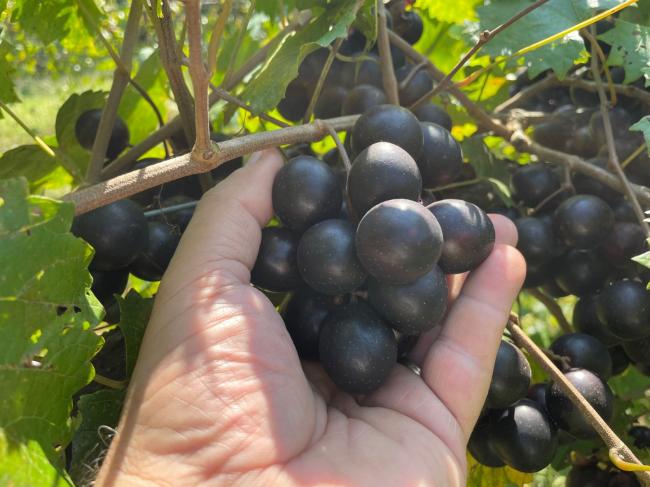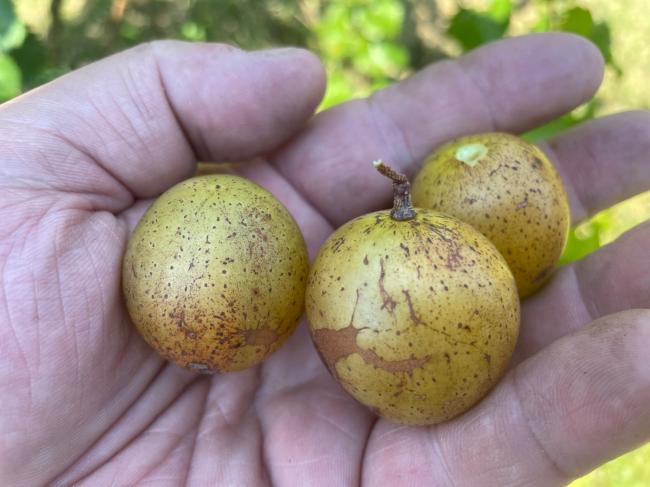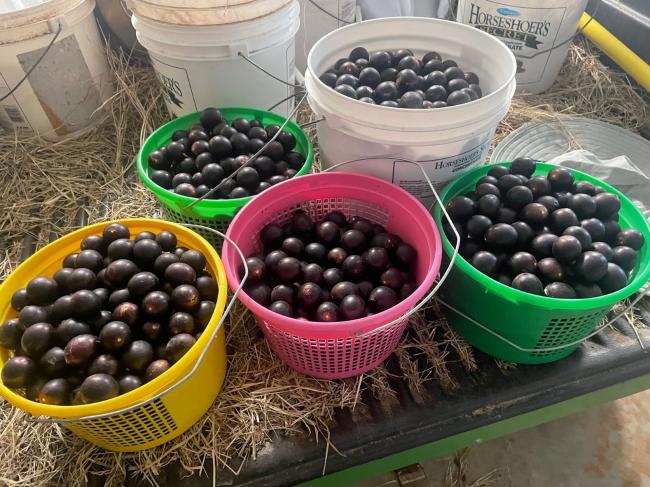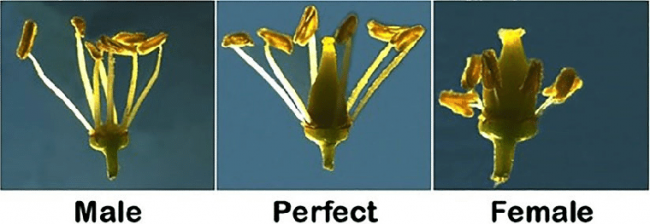Late summer means it is muscadine picking time!
I love this time of year. It is still hot and for some reason, the past month has been exceptionally wet. My gourds and pumpkins are growing nicely, the rattlesnakes pole beans are finally producing now that those extremely hot days are gone, the okra needs picking every 2 days… and the muscadines are ripening. Oh, the flavor & sweetness packed into those grapes is almost beyond belief. My wife is gonna make a batch of jelly with the ones I picked today.
Muscadines are a great crop for warm, humid climates. It requires no spray and disease isn’t an issue. You do need to prune each winter, as grapes are born on new growth. I have around 100 row feet of muscadine trellises and they bear lots of huge, juicy grapes. About half are the bronze variety, called scuppernongs which I actually prefer a bit more than the black (very dark red), but my wife prefers the dark red in making jelly because it makes a nice red jelly.
-
Comments (16)
-
Gideon ParkerStaff - September 7, 2022
Those look huge and delicious! Great job with such a successful crop Redneck, that must be really rewarding.
I look forward to seeing pumpkin pictures next month 😉
-
RedneckContributor - September 7, 2022
They are really big & delicious. It does feel good to bring in a successful crow however with muscadines, it takes no skill beyond understanding how to prune each winter. They are the easiest thing I’ve ever grown.
Do I remember you planting some on a fence line?
-
Gideon ParkerStaff - September 7, 2022
You are right! Good memory, my family grew some green grapes along a fence while I was growing up. They were nice to eat right off the vine, but we never mastered preserving it into grape jelly.
-
RedneckContributor - September 8, 2022
I look forward to seeing pumpkin pictures next month.
Well, here is a current picture of a few pumpkins growing in my overgrown orchard. Also are some pictures of some gourds that grew across the orchard aisle and then up the fence. They really can grow! I think they are rather pretty too.
-
Gideon ParkerStaff - September 9, 2022
Hey! Thanks for taking the time to share those pictures. I love pumpkins and miss growing them. I don’t know why I didn’t do that this year…
Those gourds sure are beautiful. I bet they are like snowflakes, no two patterns are alike.
I remember you having a patch that spontaneously popped up from the previous year’s fall decorations, is that this patch or how is that one doing this year?
-
RedneckContributor - September 10, 2022
No, that patch died in the extreme heat we had earlier in the year. These pumpkins & gourds were planted in the orchard, where I had removed some trees. Those locations were already on drip irrigation and have worked out well. I ran two strips of landscape cloth between the trees in that row and cut out a hole at the drip irrigation to plant the seeds. Obviously the vines outgrew the cloth and are running wild in the aisle grass. I also planted some Seminole pumpkins on a fence up in the garden and they are doing great. I’ll take a pic later today.
-
-
Frozen22 - September 7, 2022
I was seething with envy by your third sentence, and that picture…. Nicely done. Would love to have a small patch of land myself one day.
-
RedneckContributor - September 7, 2022
I had a friend, who passed away a few years ago, who had 3 trellises with muscadines in his small, suburban backyard. They took up most of the backyard and he really enjoyed making wine. His first few batches weren’t all that good but after a few years of trial & error, he actually made some very nice wine. Point is, it takes very little room to have a nice crop of grapes. They will grow down any fence you have on your property. I strung a high tension wire at the top of a fence in my garden & put a male plant there a couple of years ago. It now takes up all of that section of fence and is loaded with muscadines.
Male muscadines are self fruitful. The female ones require a male nearby to set fruit. In my muscadine orchard, where I have 3 trellises, I have male & females all mixed together. But where I plant individual vines, I always plant males. They say the females will produce more than males but I can’t say I’ve ever noticed any real difference.
-
-
RedneckContributor - September 11, 2022
Here are my Seminole pumpkins. They originate from the swamps of Florida so they can handle the heat, humidity, disease and insects. Don’t rightly know why it is called a pumpkin as it is really a winter squash. They are prolific growers and nothing seems to bother them and man do they taste good! They will last thru the winder just sitting in my garage with no special care. For those wanting a survival garden, you really need these seeds.
-
RedneckContributor - September 18, 2022
-
Gideon ParkerStaff - September 18, 2022
I just saw the pumpkin video and they look great! Can’t wait until my wife makes me my first pumpkin dessert of the year.
And WOW! Those muscadines look huge! Is the middle picture another type of grape?
You win the award for best harvest on The Prepared for 2022! haha
-
RedneckContributor - September 18, 2022
Yes, those bronze colored ones are scuppernongs. They were originally found along North Carolina’s Scuppernong River in the 1600s. All scuppernongs are muscadines but all muscadines are not scuppernongs. One of my scuppernong varieties grows huge grapes and that is the ones in my hand.
-
-
RedneckContributor - September 19, 2022
When ordering muscadine vines, there are 4 characteristics that you can order and need to understand. BTW, I get mine from Ison’s. https://www.isons.com/product-category/muscadines/
First of all, you have the 2 sexes. Male varieties are self fertile, as they have both male & female flowers, and can pollinate themselves as well as a few female varieties close by. Female varieties require a self fertile variety to set any fruit. If you only purchase one vine or just a couple, I suggest getting self fertile ones. If you are gonna plant several varieties or even more, then feel free to mix them up. Just make sure a self fertile plant is next to a female.
Then you have fruit color… either red/black or bronze. The red/black, sometimes called black & sometimes called red, start out as fully red & darken as they ripen. A solid black one is fully ripe but one that has a bit of red on the end is still ripe. As I stated earlier, the bronze varieties are called scuppernongs. I find a slight difference in flavor between the two but nothing extreme. My wife prefers the red/black grapes as she likes the reddish tint it adds to her jelly.
When you bite down on a muscadine, you will notice several things very quickly. First off is the INTENSE muscadine flavor. Nothing like any other grape I’ve ever eaten. I can’t explain it. You just have to experience it. To me, it is one of the best flavors I’ve even put in my mouth.
Second, you will notice it has a rather thick skin and has seeds. The thick skin is certainly edible, but I rarely eat it. There is an art to eating muscadines outside, You pop it in your mouth, bite down to release all the juice and after a few moments, spit out the skin & seeds.
-
Conrad B - September 22, 2022
Excuse my naïvety, but why wouldn’t you only buy male versions of the plants if they can self pollinate? If you had a female one you risk it not getting properly pollinated and not producing as much fruit.
And just out of humor, how do you tell the sex of a muscadine plant? You can’t lift it’s leg and check. Great harvest by the way!!
-
RedneckContributor - September 22, 2022
I apologize for the confusion. I attempted to keep it simple, by saying male & self fertile are the same, but that is not true. Since they both produce pollen, I grouped them together. Also, since male muscadines produce no fruit, they are not sold by nurseries anymore.
In the wild, there are only male & female muscadines, with only the female producing grapes. A while back, folks found some self fertile varieties and by selective breeding, we now have many self fertile varieties. Around my farm I have several wild muscadines growing along the edge of the property. Mine must be all male, as I’ve never seen a wild muscadine grape on my property.
You sex a plant by its flowers. A male has functional stamens that produce pollen and female flowers have a functional pistol, which receives the pollen. A self fertile flower has both functional parts. A self fertile flower is also called a perfect flower. If you look at the picture below, it is rather easy to see. Similar to how squash flowers look. On a squash vine you have all sorts of flowers, but it is easy to see some have a pistol that becomes the squash while most just have a stamen for producing pollen.
Why have female plants? Well, if you have a large enough orchard, with say a dozen or more plants, pollinating the female plants really isn’t an issue, as long as you put a self fertile next to a female. Having female varieties in your orchard just gives you more varieties with subtle differences such as sugar content, fruit size, flavor, etc.
But one would do just fine planting only self fertile varieties, no matter how many plants you have. I really can’t tell any difference between any of my plants, except for the difference between the scuppernongs and the black varieties.
Hope this helps.
-
Conrad B - September 25, 2022
That all is very interesting! Thank you for clarifying, the picture was helpful as well.
-
-
- News for the Week 2026-01-05 - 2 days ago
- News for the Week 2025-12-29 - 1 week ago
- News for the Week 2025-12-22 - 2 weeks ago
- News for the Week 2025-12-15 - 3 weeks ago
- News for the Week 2025-12-08 - 1 month ago
This forum is heavily moderated to keep things valuable to as many people as possible. Full community policies are here. The basics:
- 1. Be nice to each other.
- 2. Stay focused on prepping.
- 3. Avoid politics, religion, and other arguments.
- 4. No unfounded conspiracies, fake news, etc.
- 5. Debate ideas, not people.
